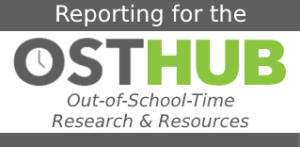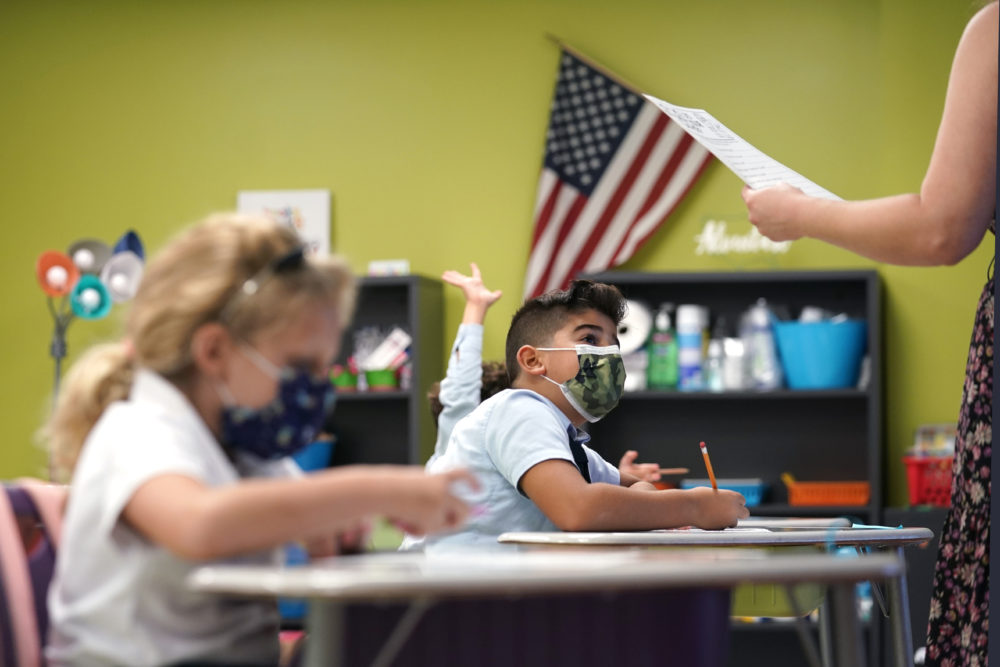A group of Atlanta teens shed light on what they want and need after the final bell of the day rings at school, and overwhelmingly they’re seeking a sense of community and belonging.
The members of VOXATL, a youth development nonprofit organization, recently held a virtual forum to share results of a study they conducted about afterschool programs — one of hundreds of events held around the country last week to mark Lights On Afterschool.
 Lights On Afterschool is a project of the Afterschool Alliance, an organization dedicated to ensuring that all children in the United States have access to quality, affordable afterschool programs.
Lights On Afterschool is a project of the Afterschool Alliance, an organization dedicated to ensuring that all children in the United States have access to quality, affordable afterschool programs.
Landmarks across the country, from the Empire State Building in New York City to the Superdome in New Orleans, were bathed in yellow and blue lights to bring attention to that mission. Rallies, parades, town halls and other events from coast-to-coast showcased the skills students hone and talents they develop at their afterschool programs.
“In the best of times, afterschool programs do remarkable work keeping kids safe, inspiring them to learn and giving working parents the peace of mind that comes with knowing their children are safe and supervised after the school days ends and until they return from their jobs,” said Afterschool Alliance Executive Director Jodi Grant. “For the last year-and-a-half, afterschool programs have been expanding their hours and services, delivering meals and enrichment kits, supporting students learning remotely, connecting families to social services, and much more.”
Grant pointed to research indicating that demand for afterschool programs exceeds availability. According to the most recent America After 3PM household survey of more than 31,000 families, for every child in an afterschool program in the United States, three more are waiting to get in.
The families of 24.6 million children — more than ever before — are unable to access a program. Many families said cost was a barrier. The study also found significant inequities in availability, with Black and Latinx children most likely to be unable to access the afterschool programs their parents want for them.
Additionally, 87% of parents favor public funding of afterschool programs to expand opportunities for kids in underserved communities. The support is bipartisan, with 91% of Democrats, 85% of Republicans, and 87% of Independents in favor of federal spending.
The survey also found that 7.7 million children are alone and unsupervised after school. This statistic resonated with Boston University freshman Laney Broussard, who shared her experiences at the VOXATL forum.
“For some, the programs were a placeholder until a teen could go home,” she said. “For me, it was home, where I got to expand on what made me me. They built a sense of community, where I got to take ownership of what I learned in the classroom.”
The VOXATL Forum was created by teens, for teens. And those students also conducted their own survey which found that 60% of their young respondents are looking for a sense of community and belonging in their afterschool programs.
“By hearing directly from teens about their experience, we can create more effective programs and resources that actually meet their needs, rather than assuming that we as adults know what they need,” said Allison Hood, VOXATL’s interim director.
Just before the VOXATL virtual forum wrapped up, Broussard summarized the mission of Lights On Afterschool.
“Afterschool programs are the main change agents in a child’s educational experience,” Broussard said. “These programs teach us that learning doesn’t just happen inside the classroom — it happens even when the lights go off.”






























